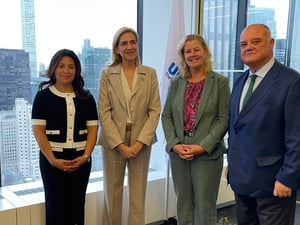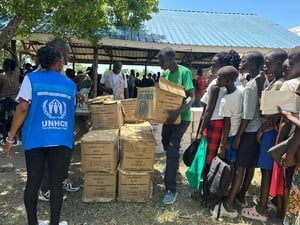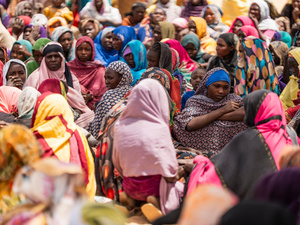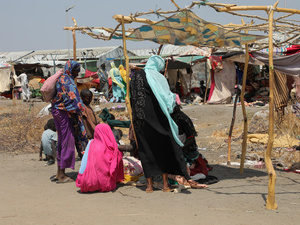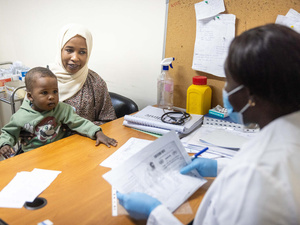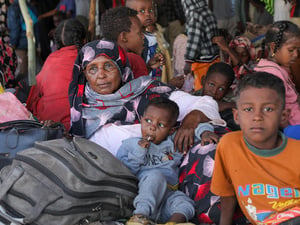UNHCR welcomes Ethiopian decision to relax encampment of Eritrean refugees
UNHCR welcomes Ethiopian decision to relax encampment of Eritrean refugees
UNHCR is encouraged by last week's decision of the Ethiopian authorities to significantly relax movement restrictions for Eritrean refugees through the introduction of a so called 'out-of-camp' scheme. This new policy essentially allows Eritrean refugees to live outside camps and in any part of the country, provided that they are able to sustain themselves financially or have a close or distant relative or a friend in Ethiopia who commits to supporting them.
This change in policy is a result of discussions between UNHCR and the Ethiopian government focused on enabling Eritrean refugees to live outside camp settings. Given the fact that Eritrea and Ethiopia were a single political entity before the 1993 referendum, the new policy is also a response to refugees' wishes and needs for strengthened people-to-people relations between the two countries. Since the Ethiopia-Eritrea border-conflict in the late 1990s more than 60,000 Eritrean refugees have crossed to Ethiopia.
UNHCR welcomes the new policy, as it officially introduces a new approach for hosting refugees in Ethiopia. Besides allowing refugees to live in urban settings, it also improves their access to services and helps build bridges with host communities. It is envisaged that full rollout of the policy will significantly reduce the costs of looking after refugees, as those benefiting from the scheme will be sustaining themselves, mainly through family support mechanisms.
It is our hope that this decision will eventually expand to include refugees from other countries as well. Many Somali and other refugees already live in Ethiopian towns and cities with the knowledge of the authorities. Today, Ethiopia hosts some 138,000 refugees including Somalis, Eritreans and Sudanese. More than 36,000 Eritrean refugees live in three camps and two community centres that are planned to be converted into refugee camps.
Any Eritrean refugee residing in an Ethiopian camp and without a criminal record is eligible to benefit from this scheme. Many Eritreans in Ethiopia find work in the informal sector and the government normally tolerates this. The new policy also involves skills-training and educational opportunities which will eventually better equip the refugees to cater for themselves.
According to UNHCR's office in Addis Ababa, since the new policy came into force last week indications are that a good number of Eritrean refugees are planning to make use of this new opening.

